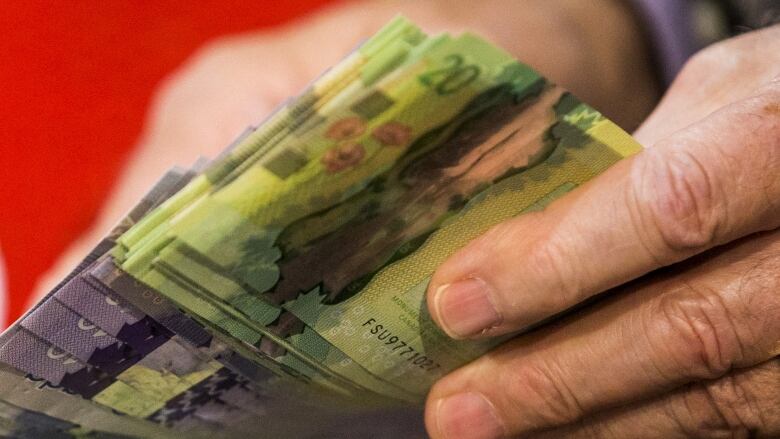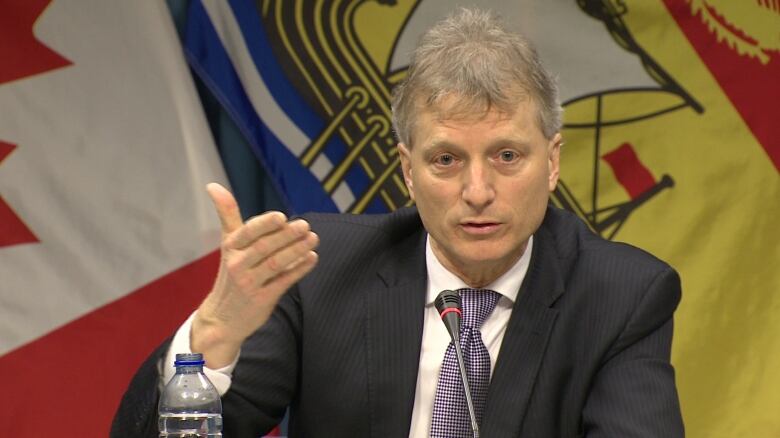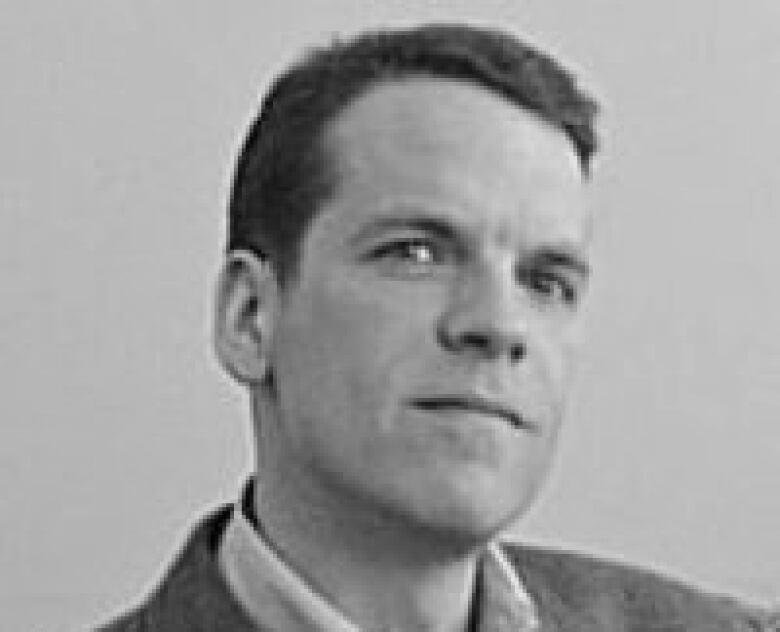Liberals' 'tax the rich' plan showing poor results
Rather than generate revenue, wealthy earners in N.B. reported income declines

New figures show New Brunswick's 6,000 wealthiest earners largely escaped paying more income tax in 2015, despite a move from the Gallant government to significantly raise tax rates on the group and predictions the change would generate millions in new revenue.
"We are creating two new tax brackets that will see the richest New Brunswickers contribute more during these difficult times," announced former New Brunswick finance minister Roger Melanson during the government's first budget speech in 2015.

Melanson then raised the province's top income tax rate of 17.84 per cent to 21 per cent for income above $150,000 and 25.75 per cent for amounts above $250,000.
In combination with the then-top federal tax rate of 29 per cent, it created the highest income tax in Canada for the wealthy 54.75 per cent and Melanson said the province's top 6,000 earners could expect to pay the province an average of $5,000 more apiece.
"These personal income tax changes are estimated to raise an additional $30 million annually," he said.
Instead, results released this week show the changes generated little new tax revenuein 2015 as high income earners took various steps to avoid paying more.
Warnings ignored
And although some economists warned two years ago that would likely happen, the province still appears to be in the dark about how much the initiative has misfired.

"The results don't surprise me," said Saint John tax accountant Andrew Logan, who insists the province was naive to expect a revenue windfall from boosting tax rates as much as it did on the rich.
"When you raise the top marginal rate for high income earners they're going to be looking for ways to reduce their tax bill and they're going to be seeking professional advice and looking at ways within the tax code to bring that number down," he said.
"If you're a business person and have a company or are an incorporated professional there are avenues available to you to keep your income lower."
Income decline reported
In a detailed report on high income earners and the taxes they pay released by Statistics CanadaWednesday, the agency revealed New Brunswick was the only province in Canada where wealthy tax filers reported declines in their income in 2015.That actually lowered theirincome tax bills in 2015 compared to a year earlier despite facing higher rates.
The results were most dramatic among the province's 600 most wealthy. That group reported $438.8 million in income in 2015 including capital gains, $59.5 million less than in 2014.That lowered their combined federal and provincial income tax bill by $5.8 million from 2014 despite the heavy increase in their provincial tax rate.

"It's not surprising to me that we see these kinds of effects,"University of Toronto economist Michael Smart said. "When tax rates go up people just get better at their tax planning."
Two years ago, Smartco-authored a paper specifically looking at how large increases in provincialincome tax rates on wealthy Canadians do not generateequivalent increases in revenues because of tax reduction strategies the rich deploy in response.
Smart says it would take detailed study to understand just how much money New Brunswick was able to raise from its high income tax increases but the new figures from 2015 suggest it is likely 80 per cent less than advertised.
"That's the lesson here. You can't get revenues simply by raising rates at these high income levels," said Smart.
"Tax avoidance and tax planning by high income Canadians is an issue and we have got to look at it figure out where it's happening and how it's happening.If governments do want to raise taxes on high income Canadians they've got to find ways to shut this down."
Not publicly acknowledged
New Brunswick's Department of Finance did not respondThursdayto a request for information on what it knows about how much revenue the tax increases ultimately generated but the province has not acknowledged publicly the tax initiative fell short of expectations.
Premier Brian Gallant mentioned tax increases on the wealthy more than a dozen times in question period as one of his government's signature achievements that has helped finance several expensive initiatives.
"We are focused on growing the economy by investing in our people, asking the one per cent to pay more so that we are able to invest in workers and in free tuition, raise the minimum wage, enhance the CPP, and do all these things when the opposition has been saying nay," said Gallant last month.












_(720p).jpg)


 OFFICIAL HD MUSIC VIDEO.jpg)
.jpg)



























































































